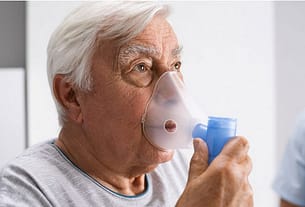- Recent studies show the incidence of early-onset cancer diagnosed in adults under 50 is increasing.
- Scientists found that lifestyle factors starting in early life and young adulthood likely influence early-onset cancer risk.
- Researchers from Washington University School of Medicine suggest accelerated biological aging is driving the increase in early-onset cancers.
Cancer occurs when genetic mutations cause cells grow uncontrollably and can occur in any organ or tissue of the body. According to the World Health Organization, the condition is the second leading cause of death worldwide.
Whereas cancer typically affects people ages 50 years and older, studies indicate that, since the 1990s, the incidence of certain cancers has been rising among those under 50 years old in many parts of the world.
Early-onset cancers pose a higher risk of long-term health problems, including infertility, cardiovascular conditions, and secondary cancers as well as side-effects from cancer treatment.
The recently released Cancer Statistics 2024 report from the American Cancer Society (ACS) stated that cervical and colorectal cancer diagnoses have increased in younger males and females.
Another recent study reported that the early-onset incidence of 29 cancers increased by about 79% globally between 1990 and 2019, with early-onset cancer deaths also rising by about 28% during that time.
While the data shows early-onset cancer is increasing, scientists are not completely sure what’s causing the increase. Most agree lifestyle and environmental factors are involved, but more research is needed.
Recently, researchers conducted a review of various studies to determine possible risk factors for early-onset cancer.
They noted that lifestyle factors early in life such as diet, obesity, and environmental exposure may contribute to early onset cancer risk.
The Cancer Types Studied
For the review, the researchers first analyzed global data from the years 2000 to 2012 on the incidence of 14 cancer types that have increased in incidence among adults under age 50. These included:
- breast cancer
- colorectal cancer
- endometrial cancer
- esophageal cancer
- head and neck cancer
- kidney cancer
- multiple myeloma
- pancreatic cancer
- prostate cancer
- stomach cancer
- thyroid cancer
The researchers then examined studies investigating possible risk factors for cancers, alongside literature describing the clinical and biological tumor characteristics of early and later-onset cancers.
They acknowledged that the increased incidence of early-onset cancer might be partially linked to increased screening uptake. They also wrote, however, that other factors are likely responsible too.
Lifestyle factors and cancer risk
After analyzing the literature, they noted that increasing evidence suggeststhat there may be intervals of several decades between initial cellular damage and clinical cancer detection.
They further noted that increases in early-onset cancer correlate with rising lifestyle trends, including more westernized diets, lifestyles, and environments.

They noted that such changes, which started in the mid-20th century, might have affected the incidence of early-onset cancer from the 1990s as their effects would have taken time to accumulate.
Lifestyle factors that may increase cancer risk include:
- Westernized diet, which is defined as high in saturated fats, red meat, processed meat, sugar, and ultra-processed foods yet low in fruits, vegetables, whole grains, and fiber
- Lower breastfeeding rates and increased formula milk consumption
- Increased alcohol consumption
- Smoking habits, including personal habits and second-hand smoke or in-utero exposure
- Reduced sleep among children due to bright lights during the night
- Night shift work, as this increases the incidence of cancer risk factors such as obesity and diabetes
- Reproductive changes, including reduced age of menarche, reduced number of births, increased age at first and last birth, and increased oral contraceptive use
- Physical inactivity and sedentary lifestyle
- Increased rates of Type 2 diabetes
The researchers further wrote that eight of the 14 cancers studied relate to the digestive system, indicating the importance of the oral and intestinal microbiome in cancer risk.
In particular, they highlighted nutrition, lifestyle factors, and higher antibiotic use as factors affecting the microbiome and increasing cancer risk.
Early-onset cancer: Faster biological aging may be the cause
Now, a new study suggests accelerated biological aging could be driving the development of early-onset cancers. The findings, which have yet to be published in a peer-reviewed scientific journal, were presented during the annual meeting of the American Association for Cancer Research on April 5–10.
“Multiple cancer types are becoming increasingly common among younger adults in the United States and globally,” Ruiyi Tian, MPH, a graduate student at Washington University School of Medicine in St. Louis and lead author of the study said in a news release.





